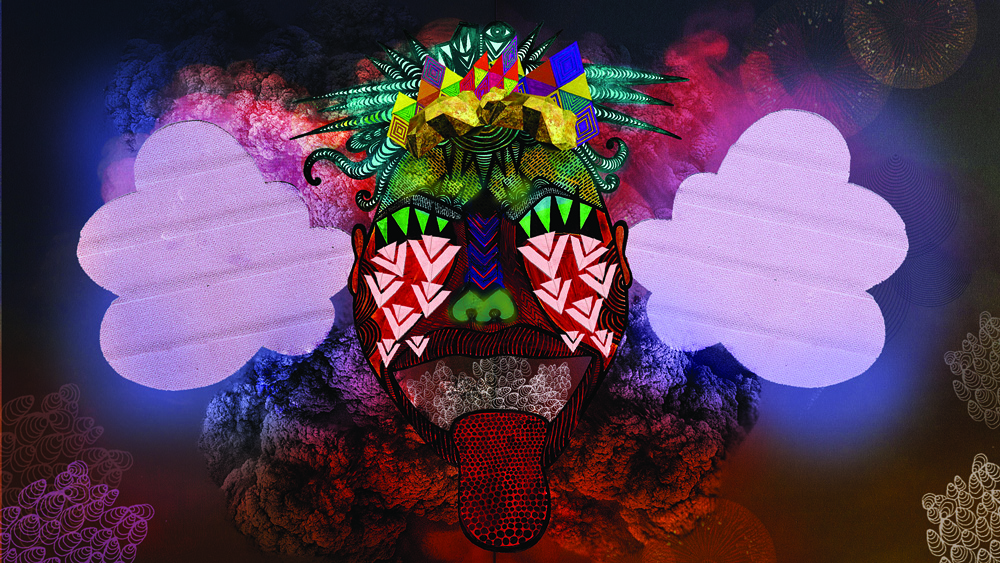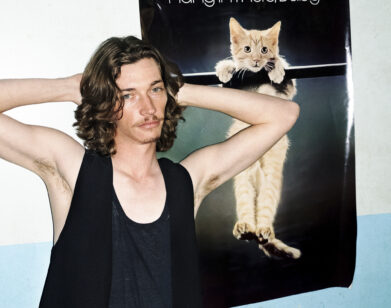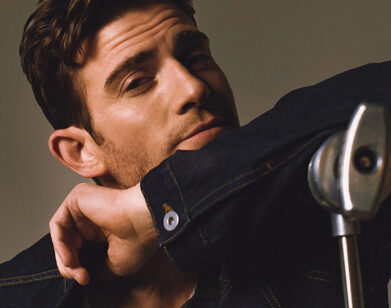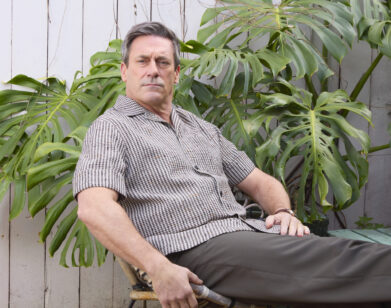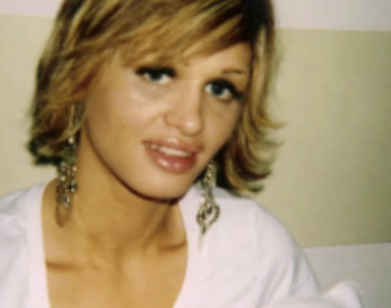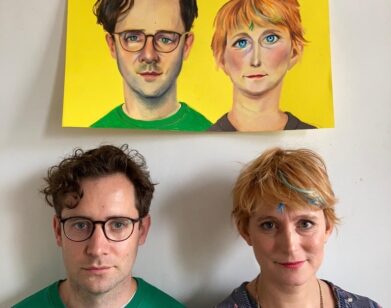How Terence Nance Complicates Things
Several years ago, Terence Nance found himself in one of those tortured-artist situations: caught up in the thrilling, frustrating something that languishes in the gray area between a friendship and a relationship.
So he did what artists do—he made an experimental film about it, starring himself and the girl in question. An Oversimplification of Her Beauty moves deftly between reconstructed scenes and imagined ones, as well as between live action and multiple styles of animation. Challenging and charming, the film has played at 40-plus festivals and counts Jay-Z and Wyatt Cenac among its executive producers. It’s marked first-time director Nance as a filmmaker to watch—a designation solidified last night, when his upcoming second feature, The Lobbyists, won The Creative Promise Narrative Award at the Tribeca Film Festival.
But Nance still tends toward self-deprecation when talking about Oversimplification. “The film is evidence of a completely fatal foreign policy on my part in dealing with women that I am attracted to,” he said with a laugh when we Skyped him to talk about the film.
ALEXANDRIA SYMONDS: You aren’t exclusively a filmmaker—you make visual art and music, too. Has it been strange for you to watch An Oversimplification of Her Beauty blow up, if that’s just one aspect of your artistic identity?
TERENCE NANCE: Yeah, that’s been an interesting thing. It’s been a little bit strange, but I think that I’m not really preoccupied with my identity or what I am as an artist and how that can be wrapped up in medium. I just think about whatever project it is that I’m doing.
SYMONDS: And you have to spend all this time promoting it now, when presumably you’ve moved on to your next artistic endeavor.
NANCE: Yeah, I think that’s the hardest part about a life of a filmmaker. What you have to go through to release a film is probably the most arduous set of tasks—compared to all the other things an artist can release, it’s probably the most labor-intensive, especially if you don’t have any money and not a large team. So, it’s been a strange psychological experience also to be kept in the space of this film now—because it premiered a year ago, but it took so long to make. About the fourth year of making it, I was kind of mentally over it in a lot of ways. And also just on a very basic level, I don’t think it is necessarily a representation of my aesthetic sensibilities at present—I mean, it’s sort of representative of how I was thinking when I was 22. [laughs] It’s, like, a very strange thing to try to promote something that represents the artist that you were.
SYMONDS: You’re really up-front about the nonfiction aspect of the film—there’s a title card at the beginning that reads, “This really happened.” How aware do you want to the audience to be with your real-life relationship with Namik? Do you think that you can’t experience this film without that understanding?
NANCE: No, I think you absolutely can’t. Also, it’s only my side of the story, so there’s a difference that could be experienced with the audience between how factual it is and how real it is. It’s 100 percent real, but it’s only factual to the extent that I can remember, and it’s also only factual to the extent that you can fit into an hour and a half. [laughs] But yeah, I think it can be experienced on any kind of point on the scale between fact and fiction—or maybe not even fiction, but, like, fantasy or dream or something.
SYMONDS: Do you think that this is an especially millennial film? I ask not just because of your age, but also because the second-person mode of address is something that our generation is fond of, and because the central relationship in the film feels very contemporary. Ours might be the first generation for which that sort of tenuous relationship is more prevalent than romantic relationships where everybody is sure of the terms.
NANCE: Yeah. I think it is especially contemporary to our generation in several ways—in the over-sharing sort of nature of the film, and I think also in the ideas not really named in the film about relationship orientation that I think are really present in the kind of cultural dialogue of our generation. I don’t call it polyandry, but I don’t think I’m monogamous, I think I’m a non-monogamous person; and I think even knowing that word, knowing the scholarship around it, is very our generation.
SYMONDS: Totally.
NANCE: The film speaks to that in dealing with relationship orientation in a way that’s sort of light and doesn’t mean, like, life or death or “our way of life will be compromised,” like has been dealt with in previous generations. And I think that’s a product of a lot of us growing up in non-traditional family structures—it not being a big deal and not dying because of it.
SYMONDS: In addition to the second person, the narration is set up as a hypothetical: “Let’s say that all this is happening to you.” How do you think that mode of address serves the film?
NANCE: Well, I wanted to anonymize it in a certain way, because I wanted to make it fiction. So I thought that was a clever way to anonymize it, around this sort of experiment that I’d come up with about trying to engage audiences in a participatory way as opposed to a voyeuristic way. I came up with this hypothesis that most films create a voyeuristic framework for the audience, in which the content of the film speaks to or displays a certain cultural space that the audience does not exist as a part of, and that they are voyeurs in that cultural space. Even if it’s I’m an American watching Top Gun or something like that, it’s still this other cultural space—I’m not a fighter-jet pilot, I’m not in the military, whatever. So, I wanted to just in a very direct and simple way break that down and make it participatory so it would instantly change that framework into another thing.
But I think it’s also how men or how masculine-identifying people tell stories to each other—in a stereotypically non-emotional way, but the emotions are present just in the asking, like, “Let’s say this happened…” Trying to be coddled or comforted or something like that. Whereas we say, “This happened to me, this happened to me,” you’re kind of being sentimental or searching for validation on the surface—but if it’s sort of anonymized in the second person, you’re doing the same thing, but it’s like, “No, it wasn’t really me.” You know? [laughs]
SYMONDS: You’ve mentioned the idea, and the film does too, that yours is the only perspective that the film comes from. But in my experience of watching it, that wasn’t true. It seemed like you made a lot of effort to include Namik’s perspective. Was that important to you, and was it frustrating? Because it seems like it’s a film that’s obsessed with how constricting it is to only have access to one perspective in life, your own.
NANCE: Yeah, I mean that’s exactly what it’s about and I think specifically to Namik, she’s just not super disclose-y. [laughs] It’s not her M.O. It’s a lot about the anxiety around not knowing, not really being able to address how to have the courage to ask her opinion. And obviously I do in the movie, ask how she feels and her opinion, but it’s about trying and feeling, in that being a microcosm to kind of trying and feeling to be in a relationship with her as a functional way of consistently communicating, you know. Her thing is enigma, and I think that’s a lot of what I’m drawn to in her. Would I even be in this space if she was telling me how she felt about things and if I didn’t kind of have to guess at it?
SYMONDS: Did you see making the film as a way for your creative self to solve that personal problem? You can’t ask her, when you’re just on the couch together, to explain to you how she feels, but you can ask her if you’re on the couch together and there’s a camera there?
NANCE: Yeah, yeah, definitely. Another woman who’s in the film, in conversation told me, basically, that I need to stop doing that. This is a long time ago, but she was like, “You need to talk to people, not write a song to them. That’s completely childish. It’s stupid, it doesn’t work.”
SYMONDS: In another interview with someone else, you have described the process of making the film as self-portraiture. Do you think that you came out of the process of making it with a stronger sense of self?
NANCE: Yeah, I think a lot of my personal life sort of became intertwined with the idea of finishing, not even this feature film, but a feature film, which happened to be this. And the sort of rite of passage that that is. But at the same time, I think, that’s sort of completely separate from the content of the film, which is very coming of age-y, and where hopefully my character quote-unquote “learns something.” [laughs] The lessons that were learned in the movie were learned before the movie was made, or very early in the making of the movie, which was seven years ago, now. I wasn’t really dealing with the kind of micro-maturities that would’ve needed to happen after those few months of the movie being made. Making a feature film generally, for anybody, for any artist, it’s like meeting Goliath. [laughs] It definitely feels like that, on some level. Except that that feeling of giant-slaying is only momentary, because you realize that there’s a way bigger giant right behind it. It’s a strange rite of passage that only predicates another one.
SYMONDS: Having made a film that is this personal, do you feel like you’re obligated to get way more personal in talking about it with strangers like me than you wish you were?
NANCE: Maybe I just have a different line than other people in terms of where my personal emotional space becomes public and private. There’s almost nothing I wouldn’t tell somebody about my quote-unquote “personal life” if they asked in any conversation. There’s nothing I’ve done or said that’s that great. I don’t see anything I’ve done to be that different than any other normal person. Maybe if I had a lot of illegitimate children or something. [laughs] I do think there’s something in the movie that’s a little childlike and innocent. Just the fact that it doesn’t get into our sexual lives, literally the sex that did not happen. I think that if it was a story about sex, then maybe it wouldn’t have gotten made.
AN OVERSIMPLIFICATION OF HER BEAUTY OPENS IN LIMITED RELEASE TOMORROW, APRIL 26. FOR MORE ON THE FILM, PLEASE VISIT ITS WEBSITE.

